Virginia is for lovers: How a tiny advertising agency changed the image of a state
The provocative ad campaign that took on Old Dominion.
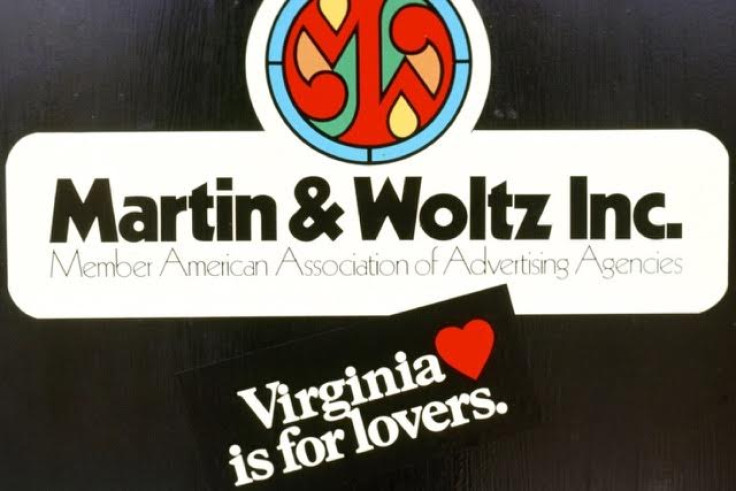
Virginia is not sexy like California. It is not really contemporary either. It is where America's first colonisers settled, so sometimes it is called the Mother of States; other times it's just Old Dominion. It is not like the south, but not really like the north either. It is not a place for change or revolution.
But driving around, a little bit of the state's true rebellious heart greets you at every traffic light. On the license plate, with a little red heart, you'll read 'Virginia is for lovers'.
Created in 1968, the slogan saw an uncertain start explode into a cultural phenomenon and fashion statement – its distinctive heart logo on T-shirts and sweaters the country over – but how it came to be is up for debate.
One creation story, reproduced numerous times and even appearing on the Virginia Tourism Corporation's website, is that the slogan was created by Robin McLaughlin, a $100-a-week copywriter at a small advertising company, Martin & Woltz, who first wrote down 'Virginia is for history lovers' before Dave Martin, one of the company's founders, said they should drop the 'history'.
Despite the story's popularity, according to people in the room, it's not the truth. IBTimes UK went in search of the slogan's true origins.
It's not that McLaughlin wasn't there, says George Woltz, but "there is no way that she did what you have read, there's no way." Woltz founded Martin & Woltz with Dave Martin in 1965. Though equal partners, Woltz was creative director while Martin was company president; as president, Martin handled most of the accounts, presentations and contracts. "He was a genius as an advertising guy," said Woltz, but he was rarely involved with the creative processes that went into the birth of campaigns.
Woltz now lives in Naples, Florida, where he's been since the early 1990s, but he was born in Virginia. He well remembers those years in Richmond, the state capital. Two years after starting the agency, already getting good business, the account for the Virginia Tourism Company opened up, and in 1967, Martin & Woltz went into the brawl of local agencies vying for the state's cash.
Martin & Woltz were unsuccessful, and Woltz remembers being surprised at the reply from one of the top guys at the tourist company when he asked which ad had won: "I don't remember."
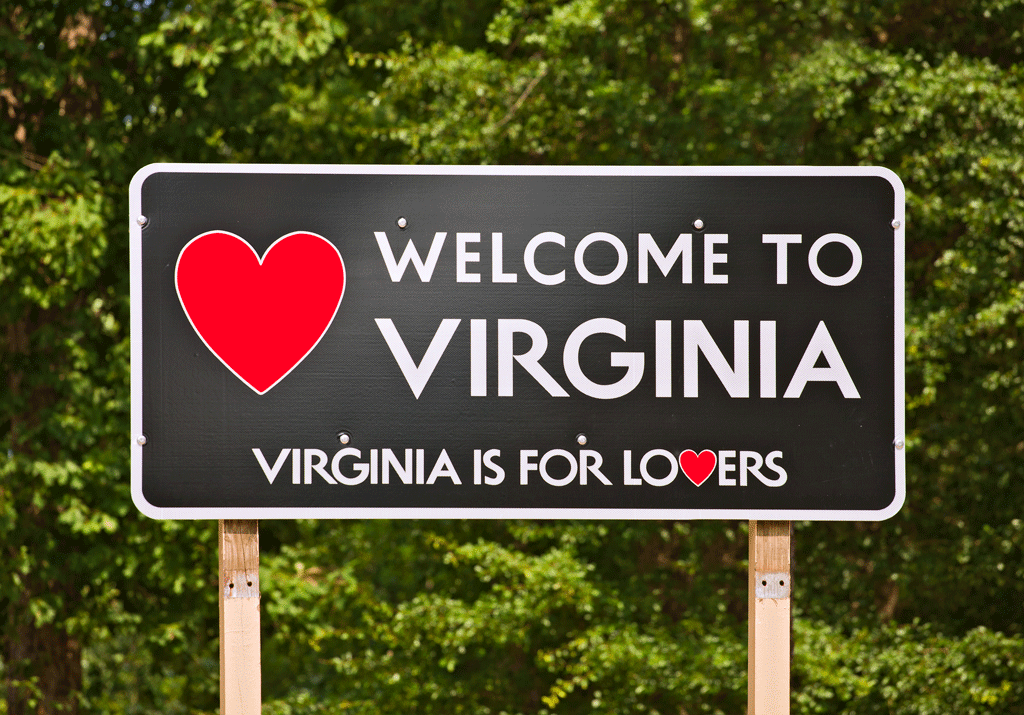
This spurred Woltz on: "When Dave and I went back to the agency, I told Dave if we get to pitch this thing again I'm going to give them a damn idea they can remember." And then, much to everyone's surprise, the account opened up again a year later. Ready to give a memorable performance, Woltz set his team on the case.
They sent out their "genius" researcher, Helen Lloyd, to find out exactly what people thought of the state of Virginia. The conclusion was simple – old people liked it and young people thought it was boring. It was Old Dominion.
Woltz and his creative team wanted to change that. They set to work making an ad that the tourism company could actually remember. They looked at the brochures for other states and noticed that they were just talking about things Virginia had too ("if you really love mountains, we've got lots of mountains," says Woltz). There was the historical side, too; if you love history then Virginia is a great place to go, and – like any good holiday destination – Virginia has plenty of beaches.
The idea germinated there. Woltz says he remembered that his wife was known as a 'beach lover'. On the final day, they had an ad – a couple walking on the beach with the tag 'Virginia is for beach lovers'. "Somebody said to just make it 'Virginia is for lovers'," recalls Woltz, "and I said 'No... it's too sexy for the state'."
When Dave and I went back to the agency I told Dave if we get to pitch this thing again I'm going to give them a damn idea they can remember
They dropped it and went to lunch. When they came back, they were still struggling on the slogan. Someone drew 'Virginia is for Lovers' across the top. "Everybody said 'Damn, that's good' and I said 'Yes, it really is. Let's do it.'"
But that ad needed the OK from Dave Martin – and he was not for it. Woltz says that Martin thought the ad too risqué and that it wouldn't get past the old men at the tourism company. Martin was the presentation guy, and he was good at it. As Libby Meggs, the company's art director, told us: "He could have sold snow balls to Eskimos." Woltz took a risk and said he would present it himself, instead giving Martin an alternative campaign – 'Virginia is a state of contrasts' – that Woltz quickly came up with.
Meggs recalls the story just as Woltz tells it. "The 'Virginia is for Lovers' campaign was the most collaborative projects I ever worked on," she remembers, "I do not think any one could be credited with coming up with that idea." She also remembers Martin thinking the Virginia Travel Company was "too conservative" to take it on.
At the pitch, Woltz presented the campaign: "I flashed it up... and I looked at the faces of these guys and nothing, not even a giggle." Martin went up after him with the skill of a much better pitchman and showed what the agency was capable of. They won the account.
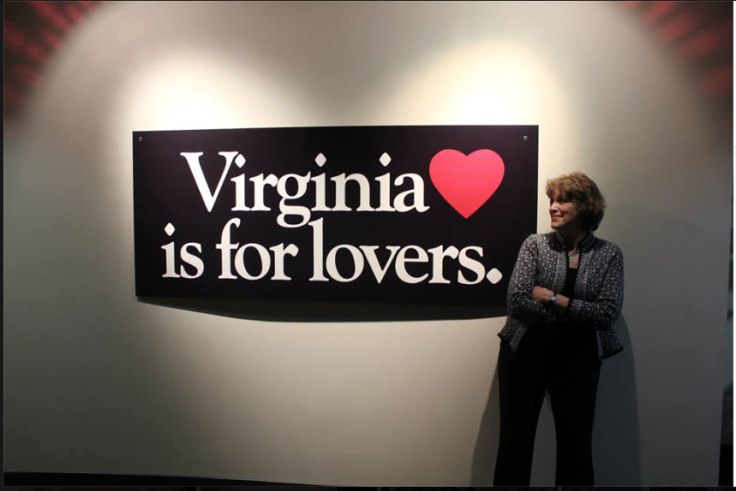
Though they had initial disagreements, Martin and Woltz now knew that Lovers was the best campaign, and argued for it. In the end, the board voted unanimously for 'Virginia is for Lovers' and the Martin & Woltz agency had the go ahead to start creating the campaign – the only caveat the board gave was that it should be "in good taste". As far as they had pushed it, Virginia's conservatism was still a force to be reckoned with.
It's then that the real collective creative genius of this band of advertisers came through. The logo had to be formed and that fell to Libby Meggs. They needed T-shirts with the caption and Meggs had been enamoured with the uniforms worn by fencers, "the shirts had a heart over the person's heart and I always thought that was beautiful so I said it had to be a black background with a heart, a red heart." With Meggs' design, and Woltz's type, a logo that would last decades into the future was born.
But even with all of this, they needed to get it out there. They needed TV time, but this was another hurdle. "Virginia had this policy: we could not buy television commercial ads on TV stations in the state of Virginia." says Woltz. So, with the help of state executive Stuart White, a TV ad was handed out to stations as a public service announcement – essentially, being aired for free.
They made a simple advert – beautiful pictures of Virginia landscapes and a woman singing 'Virginia is for Lovers' over the top. At the end of the ad, a couple is seen walking along the beach wearing tops with Meggs' logo on them. They personally took it to one of the major TV stations in Norfolk, one of Virginia's main cities, and sat with a channel executive while he watched the video. He watched it three times, then said: "We'll run it."
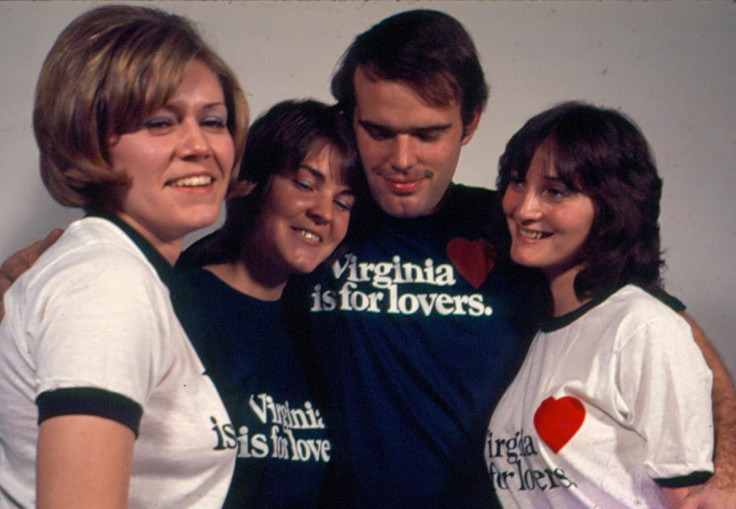
The TV spot took off. Woltz says "it ran over and over" and even played on stations in Washington, DC. Then calls started coming in for the shirts; people wanted them badly. John Boatright, the account director at Martin & Woltz, approached the state saying they should make them but was told it was "below the dignity of the state to sell shirts". "So we sold them," says Woltz, "we made more money on shirts than we did on ads."
The campaign took off, and so did Virginia. Boatright says that tourism became the state's second biggest industry within a decade. Another help along the way was Lin Holton, the first Republican governor Virginia had had for 100 years. Holton took to wearing a 'Lovers' badge during television appearances and it continued the campaign's spread; Boatright said it was "like the match that lit the fuse".
"It's funny to look back now and say it was provocative," recalls Boatright, "but it was." According to Woltz, there was only one time they really pushed that initial caveat of staying "in good taste": an advert that appeared only once in a business magazine with the tagline 'Plan Your Next Affair in Virginia'. Luckily, Woltz says, "no one ever saw it".
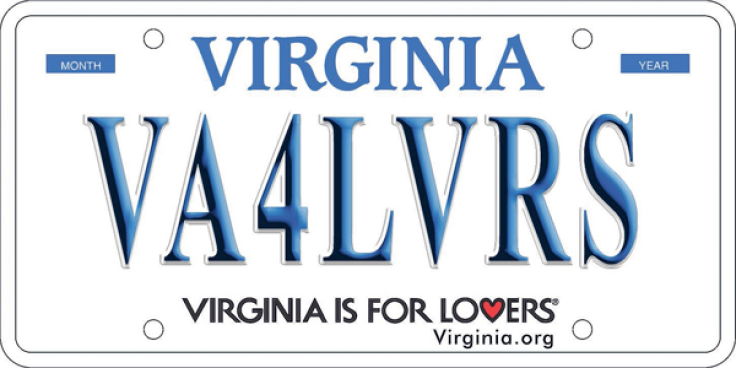
Though the story of the $100-a-week copywriter persists, none of the people IBTimes UK spoke to knew where it had originated. Attempts to find and contact Robin McLaughlin were unsuccessful – Meggs thinks that she may have remarried and changed her surname.
Boatright joined the agency a few weeks after the germinating moment, by which time McLaughlin had already left her temporary post. He'd heard her name, knew she was a part of the process that created the campaign, but also said that her role had been greatly exaggerated.
Many of the places that tell the other story credit Dave Martin, who died in 2012, as the source, but Boatright doubts it – though Martin may not have done anything to correct the record.
What is certain is that this small Richmond advertising agency started a mini-revolution in their state. A place seen as antiquated was now a destination for young couples to walk hand-in-hand along beaches. It was a change, a 60s push against the old guard, but one whose success surprised even those behind it.
There are new campaigns now, but the Virginia Tourism Company still keeps Virginia is for Lovers in pride of place on their site. These days, if you stop by the state, you'll see it right in front you, driving away.
Follow James Tennent on Twitter: @duckytennent
© Copyright IBTimes 2024. All rights reserved.






